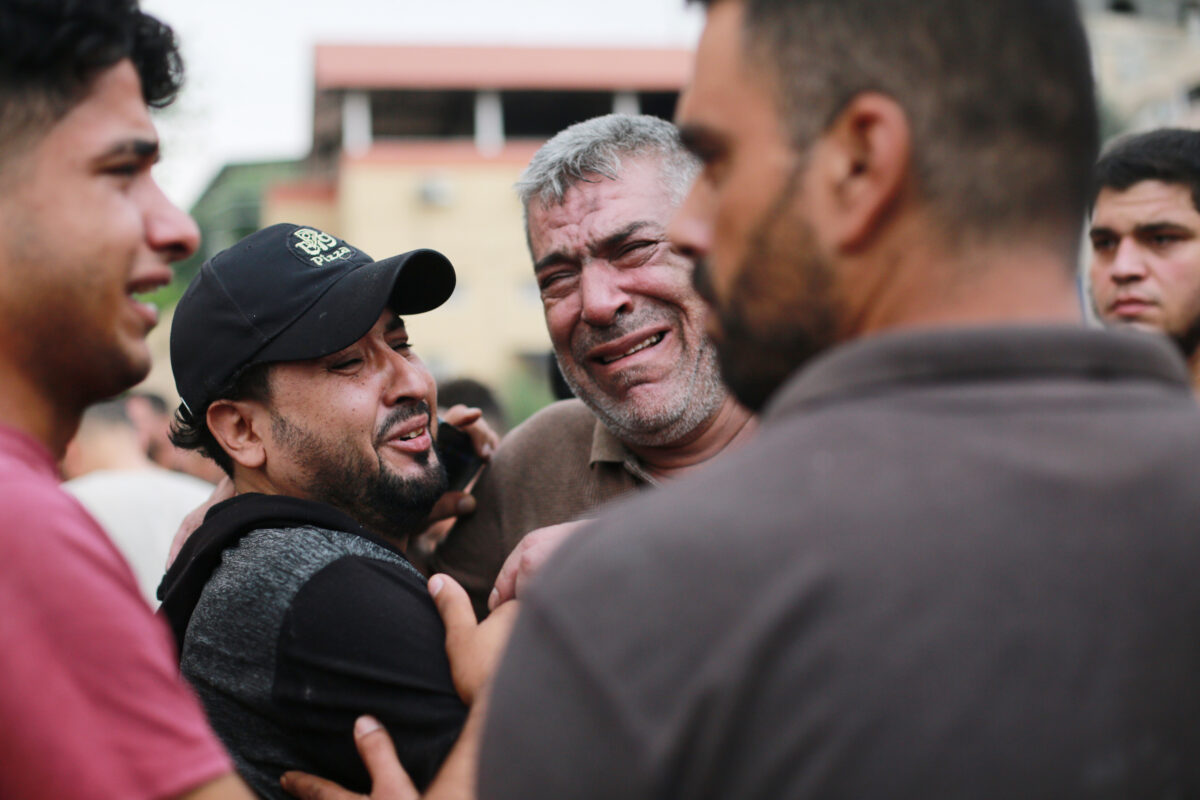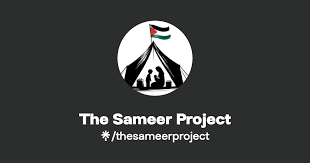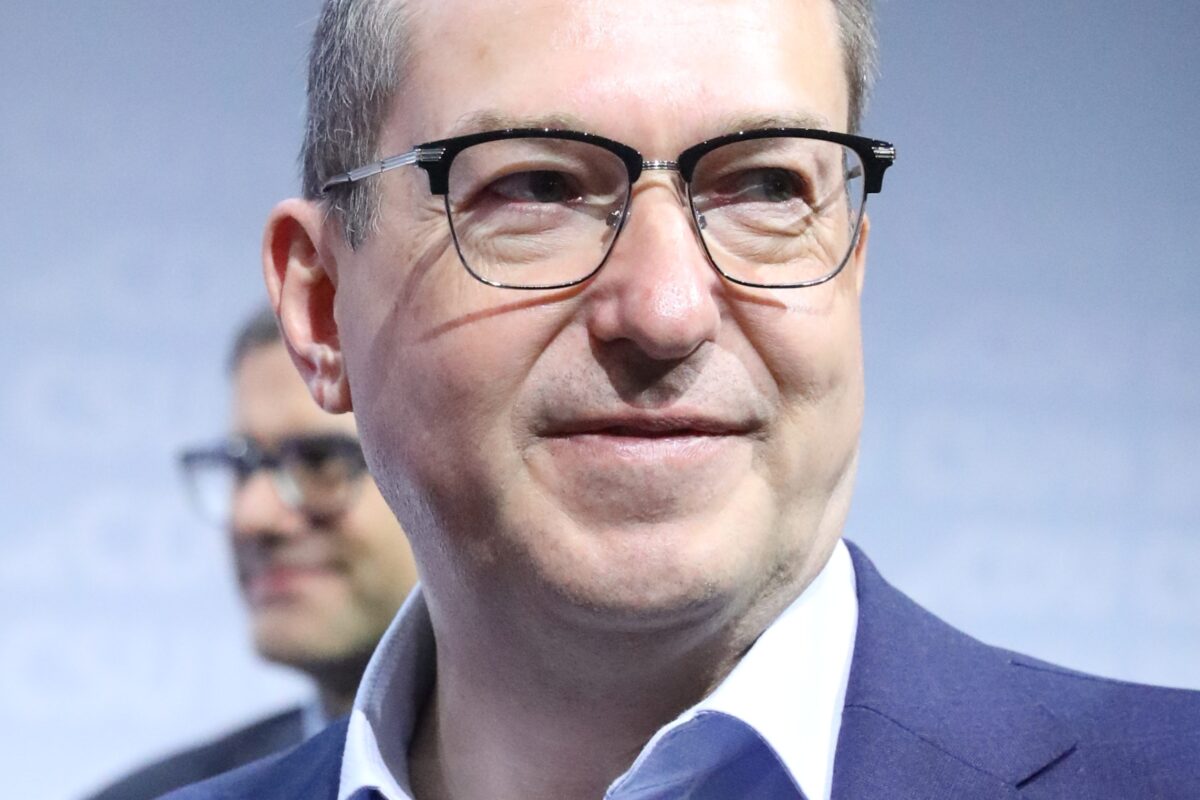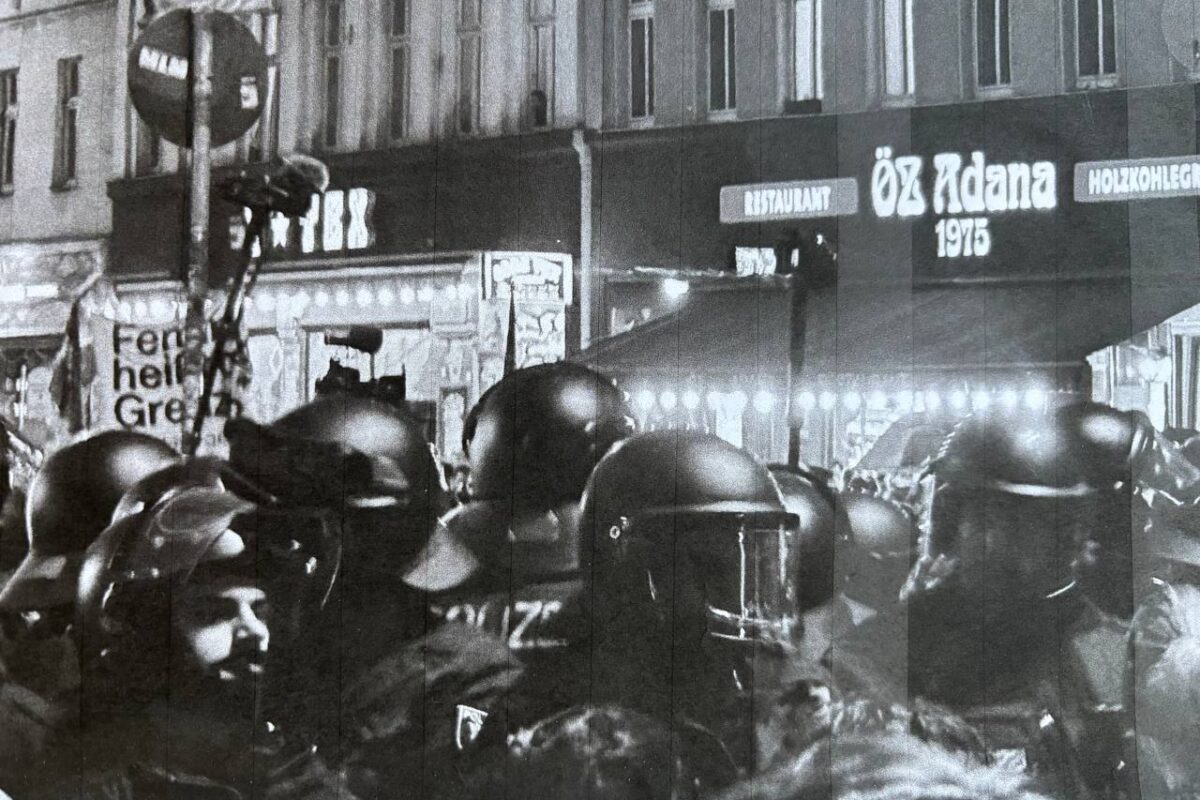“How did you know?”, everybody asks me now. “You made the right decision.” At the start of this year (2023) my wife had received a prestigious research grant for two years at the Hebrew University in Jerusalem. But half a year ago she gave in to my fears of going back to Israel and cancelled it. I had constantly reminded her of the changes with the new right-wing government. Then in April (2023) I was horrified because missiles were fired from Syria towards Israel, missiles from Hezbollah towards Israel. In May (2023) Israel eliminated the head of the extreme Islamic militant organization of the Islamic Jihad in Gaza. Soon a war started with thousands of missiles fired from Gaza towards Israel and Israel retaliated. I did not want to go back to what I had once ran from. I was even more afraid to take our child over there. I was dramatic by the time, “We have only one daughter”. Now, it does not sound dramatic. Now, everybody almost congratulates me on saving us and staying in Berlin.
But actually, I cannot hear or feel those congratulations. I have no satisfaction or “I told you so” in me. I did see it coming and yet I did not see any of this coming. Not this kind of massacre in the south of Israel. Not this type of war of revenge that will now follow in Gaza. We all saw it coming because of what the army did in the Westbank, because of the cold civil war in Israel and we did not see it coming. It broke me just as it broke everyone else.
On the third day of the 2023 Israel–Hamas war (10.10), the worldwide known Israeli writer Dror Mishani wrote a column on “Haaretz” liberal newspaper in which he asks Israeli government, for once, not to launch a war of revenge against Hamas. He suggested to remain in mourning for the massacre of 1400 Israelis and the kidnapping of over more than 199 hostages and the wounding of thousands. Of course, no one listened to his op-ed. However, I did send him a personal email letting him know that I read his words with tears. I ended that I hope for better days. He wrote back, “I fear that good days will not come, certainly not soon. Hope you are well in Berlin. You chose right… hug from here,”.
After years that I was being looked at as the one who left Israel and betrayed the national unity, I became to be the one who just “made the right choice” to move to Berlin. There is a sense that almost everyone knew or should have known where things are going. But I just feel broke and do not want to know.
I called my mom. “You don’t understand,” she says, “There are not Humans.” I tried to tell her that not all Palestinians support Hamas; and maybe not all Hamas supporters supported terrorism against Israel. I was trying to talk about the siege of Gaza that continues until now (Israel don’t allow the Palestinians to build harbor or airport). “Its like the holocaust” she cries. I understand that I must stop being so rational. She was exhausted. She sat in front of the Israeli TV all day long in Haifa. She worries about the families of the hostages like it was her family. How can I blame her? Now, my nephew and niece are drafted into the army. And my sister does not sleep at night because of worry. I should cry with her. I feel that I made a mistake. I didn’t listen carefully. Maybe because I was too far from all this.
My mind circles around the desperation and shortmindedness in those days. The Palestinian-Israeli poet wrote about the pointlessness of revenge:
Revenge“
Taha Muhammad Ali
translated by Peter Cole, Yahya Hijazi, and Gabriel Levin
At times … I wish
I could meet in a duel
the man who killed my father
and razed our home,
expelling me
into
a narrow country.
And if he killed me,
I’d rest at last,
and if I were ready—
I would take my revenge!
*
But if it came to light,
when my rival appeared,
that he had a mother
waiting for him,
or a father who’d put
his right hand over
the heart’s place in his chest
whenever his son was late
even by just a quarter-hour
for a meeting they’d set—
then I would not kill him,
even if I could. (…)*
Nazareth
April 15, 2006
Could I really keep up the decency of that writer? I will never forget that Saturday morning when I heard about the terror attacks. Or the day after, when all the news about the hundreds of people who were slaughtered in the massacre that happened in the south of Israel accumulated. Slowly the number rose to more than a thousand. It also included thousands of wounded and hundreds of hostages including sick people, so many (!) kids and disable people. Their stories and pictures don’t let go. I watch them again and again and think what would I say or do if I was to lose my family to the terrorists?
I shared a status on Instagram where I wrote that I have not lost hope for Jewish and Palestinian coexistence in Israel/Palestine despite the terror, the massacre, the war, the destruction, and the enormous loss. My family relative wrote „shame on you”. I deactivated my Instagram profile for a few hours and wanted to exit all social networks. I felt lonely and lost. I am not there, maybe I cannot relate. But then again, I also know those kind of clashes.
It wasn’t the first and not the last time that Israel would be attacked by missiles and terror. I remember writing my master’s degree under the 2006 missiles attack of the Hizballah. I did a master’s degree at the University of Haifa and sometimes had to look for shelter on the way up the mountain. While studying for this degree I learned and taught myself through books I read, through civil organizations of “Musawa” and “Adalah” whose activists I met. Somehow the missiles and my understanding of the Palestinian narrative is connected. 750,000 Palestinians were expelled from Israel, after the loss in the 1948 war. I was awakened to feel the grief after the “Nakba” and the occupation that started after 67 war. The 48’ refugees tried to go back to their land, but Israel didn’t let them and even shot those who tried to cross the border between the Arab countries surrounding Israel. On the year of 1951 Israel enacted a law “Present absentee” declaring that if a Palestinian resident was not present in their homes, they lose their property. In other words, Palestinian property passed into the hands of the Jewish people in the Land of Israel. Some of the people of Gaza are refugees from Haifa and the surrounding villages.
I wrote this poem as part of my awaking, as an expression of my anger, refusing to get broke:
Wieso ich keine israelischen Liebesgedichte schreibe
Für den Dichter Amiri Baraka
Erst gebt mir die Geschichte zurück
und danach die Lehrbücher
und sagt mir nicht mein Gedicht sei ein politisches Manifest
weil ihr von Unrecht keinen Schimmer habt, hier ein kleiner Hinweis
ich verlange Entschädigung von der israelischen Zentralbank
für die Palästinenser, für die arabischen Juden, für die Frauen,
für die Schwulen und die Lesben,
für jede Herabwürdigung, jedes Durchgangslager, jedes militärische
Sperrgebiet, jede Vertuschung und Bestechung
ich verlange dass ihr den Safe der Dichtung öffnet
alles Land zurückgebt an die denen ihr es nahmt und sie entschädigt
für die Schrecken der Besatzung
ich werde vor der Bank warten, vor den Fenstern der Nationalversicherung
unter den Karossen des Finanzministeriums
bis ihr den ganzen veredelten Rassismus angemessen entschädigt
erst wenn die Kinder meiner entschädigten Kinder auf der Uni sind, gleichberechtigt
ohne Demütigung, erst dann werde ich bereit sein israelische Liebesgedichte
zu schreiben
Aus dem Hebräischen von Mirko Bonné
VERSschmuggel Israel Hebräisch-Deutsch
Literaturwerkstatt Berlin April 2012
But I think something was broke or lost or fearful a long time ago within me while I still lived in Israel. I was born and raised in Haifa, which is a bi-national city in its social reality. Before the arrival of Zionism, Haifa was a cosmopolitan and multinational city, with the Palestinian population being the majority. My grandfather had fled to Haifa from the city of Mashhad at the beginning of the last century. At the end of the 19th century, in Mashhad, Iran, Jews were severely harassed. The Jews had to hide their Jewish identity for many years or to “convert” from the outside to Islam. At the start of the 20th century my grandpa bought a three floors villa on the Carmel Mountain and opened his clothing store in Haifa. He bought goods from the sailors who arrived at the port of Haifa and sold them at his shop downtown. He went around the north of Palestine, in the Palestinian cities of Shefa-‘Amr, Nazareth and Acre, and sold clothes in big quantities. His sons, my father and his brother continued the tradition of selling the clothes. My father spoke both Persian and Yiddish, both Arabic and Hebrew, English and many other languages. But this kind of life in the Middle East has stopped a long time ago.
“Man sagt, du konntest viele Sprachen wie König Salomo
aber ich erinnere mich nicht, dass du Persisch geredet hast
mit meinem Großvater, der mir die Hand reichte
und ich küsste sie.
Heute weiß ich, dieser Kuss ist ein ganz bestimmtes Wort
in einem Wörterbuch, das im letzten Jahrhundert verloren ging.”
(„1.“ Gedicht aus “Das kleine Boot in meiner Hand nenn ich Narbe: Gedichte”, Übersetzung: Gundula Schiffer, Parsitenpresse, 2023).
Maybe I did know about the wrong turns and paths of the Israeli government for a long time. But for this war, I did not know any of this coming. This terror attack did not only ruin the life of many but also destroyed any possibility of thinking about a peace and coexistence between Israelis and Palestinians inside and outside of Israel. This war, like all the wars before, will not bring the solution. It will make more people broke and traumatized from both sides. For almost a decade Israel met with the Hamas only through a third person (From the Qatar government or the Egyptian government etc.). I don’t understand why the Israeli prime minister Benjamin Nethanyahu never went to sit with the leaders of the Hamas in the Gulf states. “Well, PM Netanyahu didn’t even meet with Abu-Mazen, the moderate head of the Palestinian authority in Ramallah”, people tell me, “What do you think that he will create a political suicide and meet with the leaders Hamas in Qatar?”. This is how low we got.
I tear the last hairs left on my head and ask, but the price of such a political meeting is so cheap, and no one dies from it. Whereas the price of the war is enormous, and no one can appease the bereavement and grief that remain in the desolate land of the soul.
I read the news who are getting worse and I can’t stop to think what would have happen if the western countries and Israel had recognized the results of the only democratic election in Palestine. On the year of 2006, Israel and the Western countries refused to recognize the results of the democratic elections that took place in Palestine (both in the West Bank and in Gaza). And I was invited to read several poems in the Israeli Knesset as part of a civil attempt to lift the siege on Gaza. I wrote a special cycle of poems that reflected my consciousness that wanted to connect my Jewish-Arab identity with the Palestinian identity:
„Eine unfaßbare Blockade
mitten im belagerten Wort,
Herz,
wie kann man Erde ihrer Samen entkleiden
wie können Samen gedeihen
ohne Erde
Ein Kraftwerk, das Metaphern lüde
sieh, das Gedicht zerfällt nun müde
Sohn jüdischer Familie aus Bagdad
aus Aleppo und Maschhad
entfernt Wände, Türen und Scharniere.“
(„Gaza III“ Gedicht aus “Bagdad Haifa Berlin”, Übersetzung : Jan Kühne, Aphorisma Verlag, 2019).
The photos of these naïve kids that suddenly found themselves as hostages brought us nightmares. I can’t stop thinking what would happen if my daughter was kidnapped to Gaza? After all, I would also faint and not be able to express even a single word. Now, everybody talking about the Jewish Israel Grandmother (was born in Morrocco), Rachel Edri, who stalled Terrorists with Cookies. At 7 a.m. on Saturday, Oct. 7, air-raid sirens blared in Ofakim, a town in southern Israel about 10 miles from the Gaza Strip. She saw five terrorists full armed who entered her apartment.
“I saw five ‘Rottweilers’ breaking through my windows,” Rachel Edri told Israel’s Channel 13, describing the moment Hamas terrorists infiltrated her home on Simchat Torah, one of many across southern Israel that morning. “They had grenades, Kalashnikovs and what-not. ‘We are martyrs, we are martyrs,’ they yelled.” “Did you eat? Would you like a coffee or tea? I will make it for you,” she offered the terrorists as they held a grenade to her head. Rachel later told ABC news that she “knew that if they are hungry, they are angry” and so made them chicken and offered them cookies. “I fed them, I chatted with them, ‘How old are you? Where are you from?’ ” At one point, as the couple waited patiently to be rescued, they sang Israeli songs with their hostage-takers. One of the terrorists was hurt, and Rachel even bandaged his wounds, sitting with him and stroking his hand. “I was trying to distract them so they wouldn’t kill us. I also did not want them to get hungry and irritated.” (Chabad site)
She also offered them tea and cookies until the IDF soldiers came to rescue. In that manner, she used her North African hospitality, and something in this Arabic-cultural connection saved her life.
Berlin gave me the opportunity to meet the first person from Gaza. In Israel we don’t have any chance to meet Palestinians from Gaza. He was drinking his coffee at the same cafe where I sat “Kafetisch” on Weser Street. We found ourselves in the smokers’ section (before I stopped smoking). And we found out that we both like to play backgammon. And very quickly the game started to be the connecting thread between us. Every time I came to the cafe we would play. He taught me to play “Machbusa” which is a completely different version of backgammon. Will he still play with me?
In Berlin I also met a Hezbollah soldier. This was especially strange. I once served in southern Lebanon. Every time I went up to the border with Lebanon with my tank, we would discover bombs that Hezbollah had left on the border. I wrote a poem about a temporary peace I made with the Hezbollah soldier.
Ein Hisbollah Soldat und ein Soldat der Israelischen Armee
treffen sich zufällig am Ufer eines Flusses
er wollte dich aus dem Libanon jagen, weil du in sein Haus
eingebrochen bist
du hast entsprechend bezahlt, um an den Holzkolben seiner
Kalaschnikow zu kommen
mitten im Gespräch stellt er dich seinen libanesischen
Freunden vor
ein seltener Moment raucht aus dieser Berliner Friedenspfeife
gen Himmel
der Fluss, der Leviathane von allerlei grauenhaften Kriegen
gesehen hat, wird mit high
und du weißt, immer laden wir Schuld auf uns, aber für so eine
Freundschaft auf Zeit
gibt es eine Wolke, dem Auge verborgen
die flüstert Gott ein süßes Geheimnis zu.“
(„7“ Gedicht aus Gedicht aus “Das kleine Boot in meiner Hand nenn ich Narbe: Gedichte”, Übersetzung: Gundula Schiffer, Parsitenpresse, 2023).
Will our friendships continue despite this war? And again, the Hizballah treating to bomb the north of Israel where my family located. And every day I just worry and no end to the weight upon our shoulders.
Hebrew friends of colleagues of mine are now afraid to go and speak Hebrew by the Arab shops of Neukölln, a middle eastern neighborhood not far from my house. Last Friday “Kiddush” night on the Fraenklerufer synagoge in Kreuzberg the German president Frank Walter Steinmeier came and gave a speech: “Jews in Germany should never again have to fear for their lives. Protecting Jewish life in Germany is part of the self-image of our democracy. The safety of Jews is written into the foundation of our democracy. And only if our Jewish fellow citizens live in peace and security, only then can our entire country do so.” Later, Hundreds of Jewish, and non-Jewish people came to the synagogue to form a kind of symbolic human protective shield. So Steinmeier promised a sense of security, but the Jews are afraid in Berlin.
The Israeli generals promise to eliminate the Hamas. But the human price is catastrophic. And still no water, food or humanitarian help is allowed to enter. And I ask myself if Israel really thinks that if it succeeds in killing and eliminating all Hamas fighters, it will succeed in replacing it with a more tolerant regime? After all, the US managed to remove the dictatorship of Sadam Hussein in Iraq, and Al Qaeda arrived, and afterwards, ISIS arrived, and to this day Iraq is devastated because of the mistake made by the US and Britain in their unprovoked attack on this poor country.
A friend from Haifa sends me a message from the funeral of another high-school friend of us who was massacred at the Nature trans party on the south of Israel. My heart breaks down. The violence came so close to me. My entire facebook feed is filled with stories of people begging for an immediate prisoner exchange deal. But it seems that Israel is eager to revenge the Hamas more than to free their Palestinian prisoners. People don’t know that the Palestinian story is entangled with the story of its political prisoners. Since 1967, when Israel occupied East Jerusalem, the Gaza Strip and the West Bank, it has arrested an estimated one million Palestinians, the United Nations reported last summer. One in every five Palestinians has been arrested and charged under the 1,600 military orders that control every aspect of the lives of Palestinians living under the Israeli military occupation. That incarceration rate doubles for Palestinian men — two in every five have been arrested.
I am broke because I do not know how we get out of this war. In the last decade I tried in all my artistic work to connect Jews and Arabs, between Israelis and Palestinians, between my Jewish-Arab past and the past of all the exiles I could only meet in Berlin. One of my latest initiatives “We: Jews and Arabs writing in Berlin” managed to get a grant from the Berlin Senate to produce a festival of the “Middle Eastern Union” which will be established (like the European Union) after the peace between Israel and Palestine. The bi-national festival was curated together by Palestinians and Israelis met with great reactions from the German media. But now I am afraid Israel and Palestine will be another Iraq or Afghanistan.
But how do I know? I did not really know any of this coming. I hope I am wrong about this one too – like I was not: by not going to Israel and staying in Berlin. But reality bites the possibility of peace. I tell my partner that the chance for peace with the Palestinians and the Israelis is lost. And she cries and tells me, “Don’t say it won’t happen.” And I cry with her.
Mati Shemoelof’s website
An earlier version of the article appeared in a Danish newspaper “Information” (20.10), in the Berliner Zeitung (28.10) and in Lithuanian: “Siaures Atenai” (10.11)



